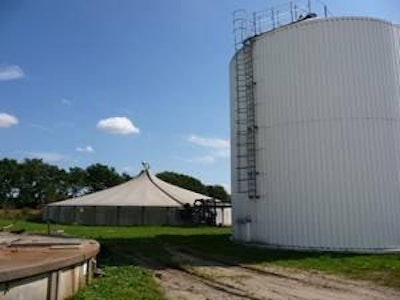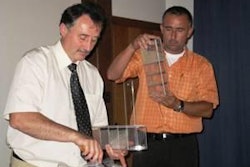
The International Biogas and Bio-Energy Centre of Competence (IBK) in Germany provide a series of courses in anaerobic digestion (AD) for pig farmers.
“We organise these courses quite regularly and they are proving popular with people from all over the world. At our last training course, we had students from about 15 different countries, including the UK, Australia, Canada, the USA and Asia,” says Michael Köttner, chief executive of IBK.
Details of future courses are available at www.biogas-training.com/course.
The first renewable energy option for pig farmers remains AD – and this can be cost-effective. German farmers have received support and encouragement from their government, but many observers believe that other governments will soon follow the German example in the rush to meet global targets to reduce carbon emissions.
“We have had this sort of system (so-called feed-in tariffs to support farmers who generate or export energy to the national grid) in place for a long time in Germany, hence the advanced development of AD here,” says Köttner. “Other governments are struggling to catch up with us now.”
When asked if small pig farmers in other countries could benefit from the German AD experience, Kottner said, “We started with small farms and dedicated engineers in the pioneering years and low technology developed then is still practised successfully on many farms here.”
While pig slurry on its own is often not the best feedstock for AD, it does provide a good foundation and can be improved by the inclusion of other fibre-based farm waste, maize, or even “spoiled” pig feed, which has a high-calorific value.
And, in addition, this technology can help improve the public image of pig farmers, because it goes a long way towards removing the odour surrounding pig slurry.

















